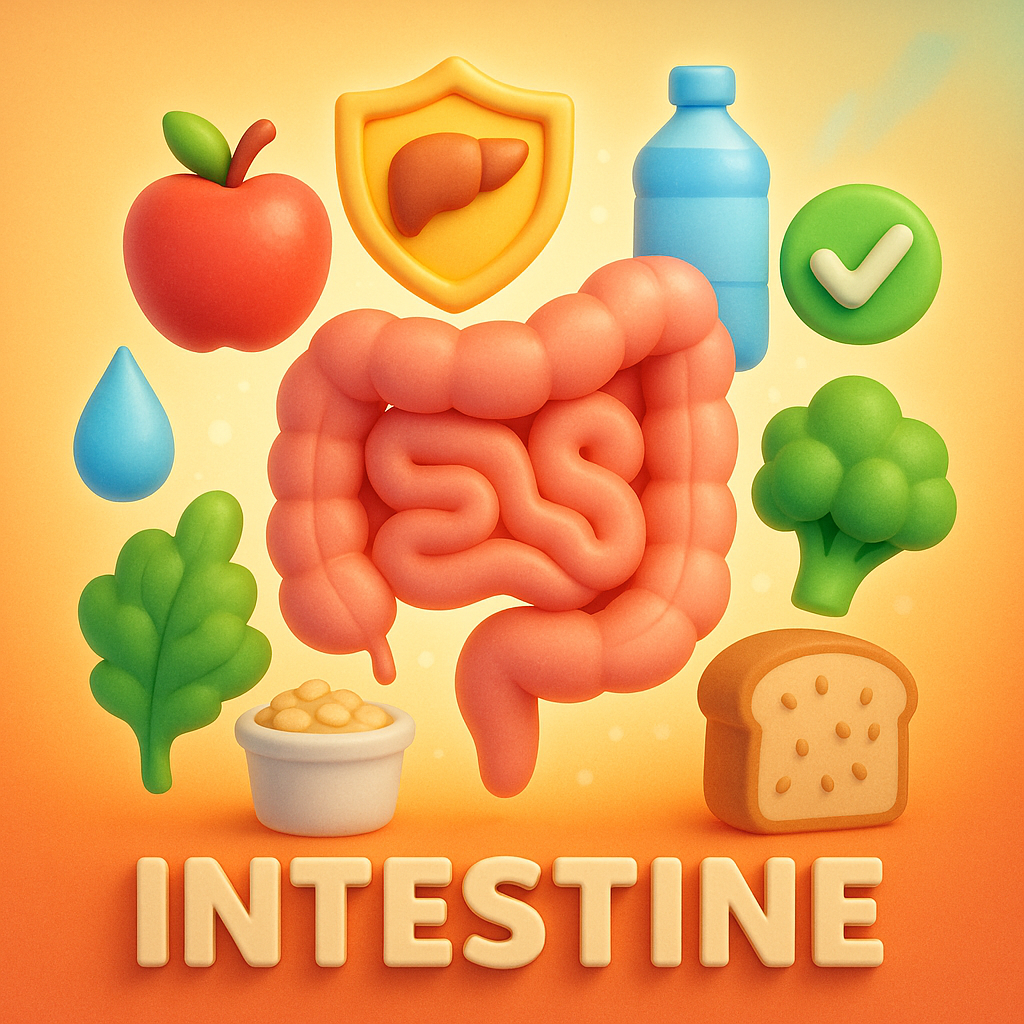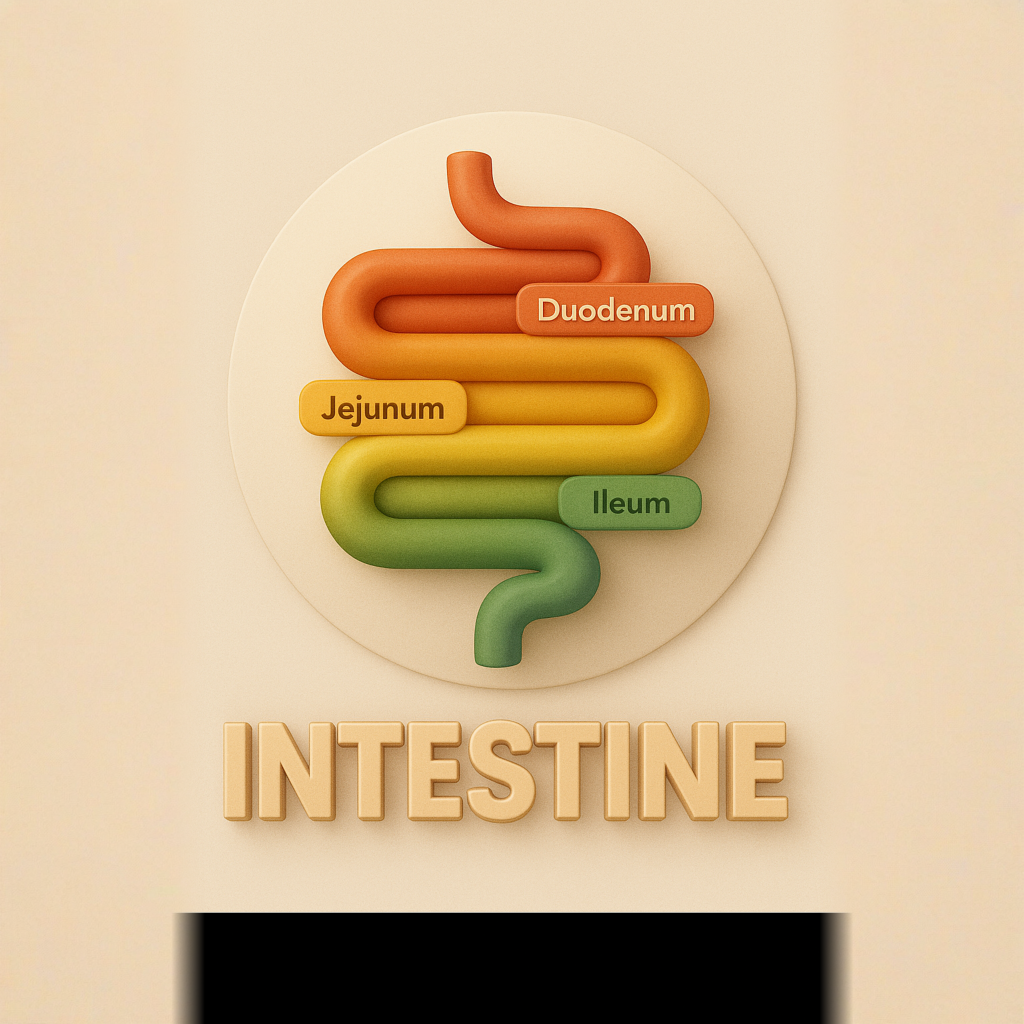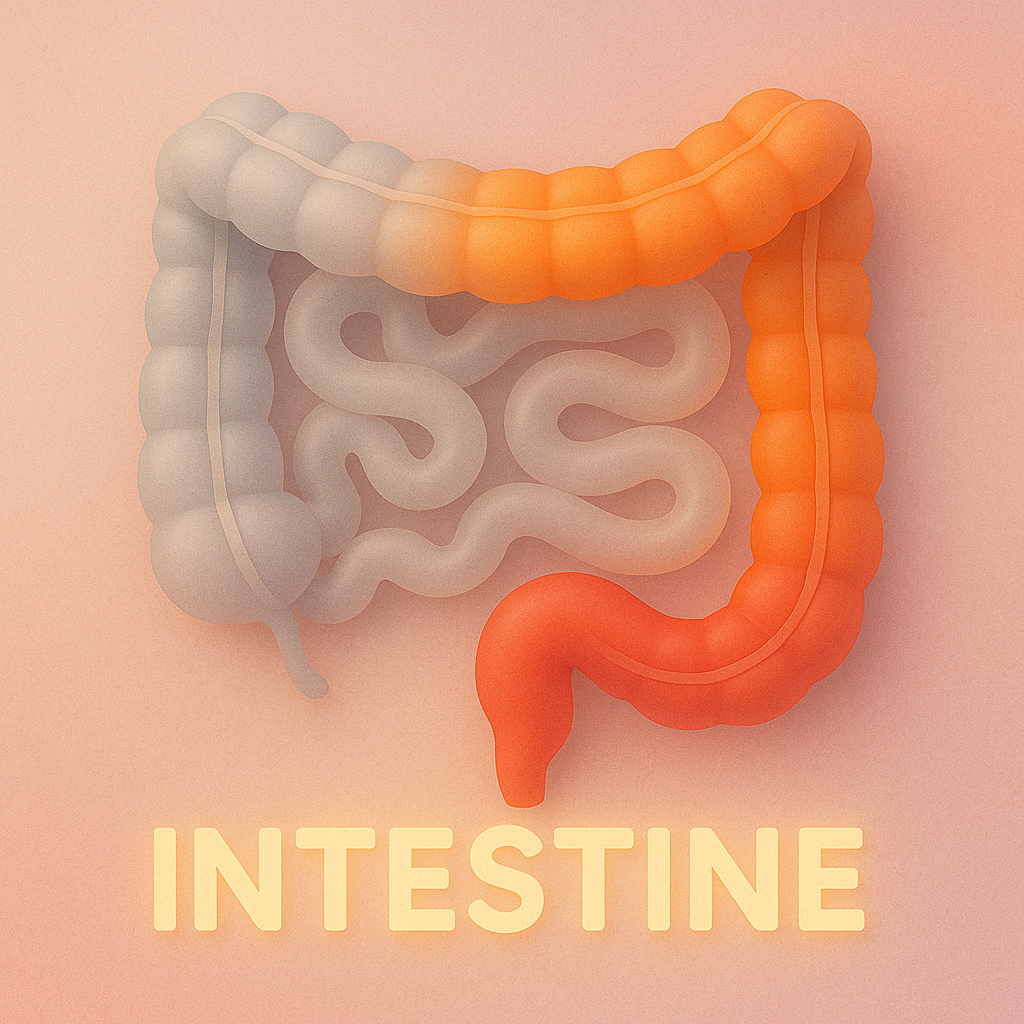Intestine
Definition
Intestine is a noun referring to the long, continuous tube in the digestive system of vertebrates extending from the stomach to the anus, responsible for nutrient absorption and waste processing. Its two main sections are the small intestine and the large intestine.
Parts of Speech
- Noun
Pronunciation
American English
- IPA: /ɪnˈtɛs.tɪn/
- Respelling: in-TES-tin
British English
- IPA: /ɪnˈtes.tɪn/
- Respelling: in-TES-tin
Etymology
Late Middle English: from Latin intestīnum ‘inward parts,’ neuter of intestīnus ‘inward,’ from intus ‘within.’
Derivatives
- intestinal (adjective)
- intestineal (adjective, rare)
- intestinally (adverb)
Synonyms
- gut
- bowel
- viscera (collective)
Antonyms
- none (for the anatomical sense)
Usage
The noun "intestine" is used in anatomical, medical, and biological contexts to describe the digestive tract’s sections responsible for nutrient absorption and waste elimination. For example, "The intestine absorbs water and electrolytes," or "Inflammation of the intestine can lead to abdominal pain and diarrhea."
Related Terms
- Small intestine: The upper portion where most digestion and nutrient absorption occur (duodenum, jejunum, ileum).
- Large intestine: The lower portion responsible for water absorption and feces formation (colon, rectum).
- Digestion: The process of breaking down food into absorbable substances.
- Peristalsis: The wave-like muscular contractions that move contents through the intestine.
- Mucosa: The lining of the intestine that contains villi and microvilli.
Detailed Definitions
Noun
- The section of the digestive tract between the stomach and the anus – a long, tubular organ where digestion is completed and nutrients and water are absorbed.
- Example: "A healthy diet supports proper function of the intestine."
- The small intestine – the part where enzymatic digestion and nutrient absorption occur.
- Example: "The small intestine has three segments: duodenum, jejunum, and ileum."
- The large intestine – the part where water is reabsorbed and feces are formed.
- Example: "The large intestine includes the colon and rectum."
intestine








